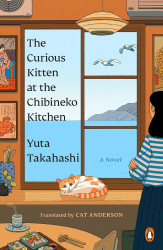
Kitagawa Chiyo (1894-1965) was more than just a writer. She was an early feminist and a prominent member of the socialist women’s organization Sekirankai, which was a leading voice in spreading socialist ideals, condemning industrial capitalism, and opposing war. Although Kitagawa wrote stories and tales for children more broadly, her contribution to the field of girls’ literature is notable: she spoke out against the romantic girls’ fiction that had gained popularity in favor of stories that would help children understand the harsh realities of society.“
“The Silk Sandals” is a short story first published in 1934. This working-class moral fable serves as a part of the body of girls’ literature that would go on to evolve into the shojo genre beloved by millions today. Although Kitagawa opposed dreamy romances, her style is out of a textbook fairy tale, wringing all the emotion it can out of readers. Since the story is on the long side, I’ve opted to excerpt two extracts from the beginning and the end and end of the tale.
The Silk Sandals
Miss Sakaru, our favorite teacher, had to leave school all of a sudden. So on her last day, after school, we went to her house to say our goodbyes. We—that is, the five of us who always have a special relationship with Miss Sakaru—Mitsuko, Toshie, Aiko, Midori, and me. After a lot of discussion, we had decided to each give Miss Sakaru one of our watercolor paintings.
“Goodness, thank you. Fine work from all of you,” Miss Sakaru said with a smile. “Now, I also have farewell gifts. Take a look around my place and see if there’s anything that you want. So long as it’s not something particularly special, I’ll give each of you whatever you’d like to take.”
There was silence. The five of us ended up just fidgeting in place.
Miss Sakaru chuckled. “I can see that you’re too shy to say what you want out loud. In that case, write down what you want and show it to me. How does that work?”
She handed out slips of paper to us. When I got mine, I fell into thought for a moment: what should I write down? But without having to think much at all, I knew exactly the name of the thing that I wanted, and wrote it on the slip immediately.
The silk sandals
Those were Miss Sakaru’s small, delicate sandals made of silk and kept carefully wrapped in paper. I’ve always loved those sandals, loved them like crazy. They were so tiny, so pretty and cute with their blue and red and yellow and purple silk threads, handmade with such care that the pattern on each sandal was perfectly symmetrical. I thought it over, got an eraser, and rewrote my request:
I would like the small silk sandals please. Chizu
I folded the paper twice and handed it to Miss Sakaru.
Everyone else had finished writing their requests. Miss Sakaru gathered the five folded paper slips in her lap, then opened them up one at a time, examining their contents. We strained our eyes watching her expression, wondering what she was going to say.
She opened the first slip and smiled to herself. She put it down and opened the next—
“Goodness.” Looking surprised, she quickly went through the rest of the slips and glanced at us with knotted brows that looked kind but troubled. Then she gave out a big sigh, lined up the slips, and opened them for all of us to see.
What was going on with Miss Sakaru? We looked at the slips one by one.
“Oh!” Our voices shouted out in unison. Because the words written down on each one of those small slips were one and the same—the small silk sandals.
“This is a problem, wouldn’t you say?” Miss Sakaru said as we all looked up at her. “If all five of you want the same thing, then surely I can’t give them to any of you. But that ends up working out just fine for me, as this is one of the only things that I can’t give away. That’s because those sandals aren’t just a pretty toy.
“So instead of giving the sandals to you, I’ll tell you the story of how those sandals were made and how I got them. Then each of you can be good girls and pick out something different before you go.”
The story she told us went like this.
Read our last piece from Japanese literature: Fresh Ink: Musashi Miyamoto







